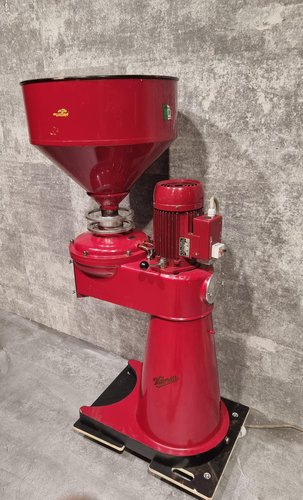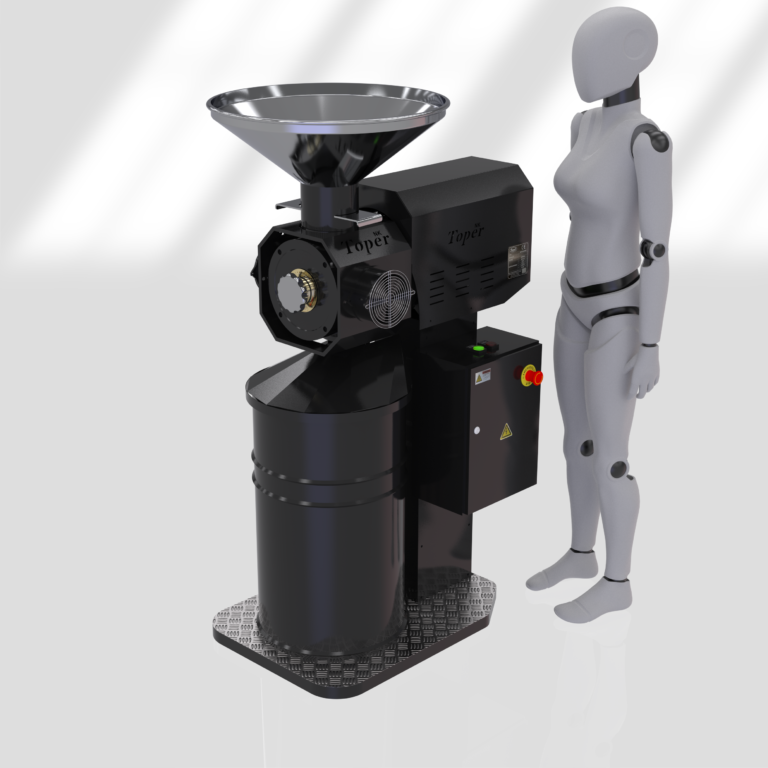Industrial Coffee Grinder vs. Personal Grinder: Main Differences Detailed
Industrial Coffee Grinder vs. Personal Grinder: Main Differences Detailed
Blog Article
Top Features to Seek in an Industrial Coffee Mill
When assessing a commercial coffee grinder, it is crucial to determine vital features that affect both efficiency and longevity. Consistency in work dimension is crucial for ideal removal, while adjustable grinding speed enables for an equilibrium in between effectiveness and quality.
Grind Dimension Uniformity
While numerous factors can influence the high quality of made coffee, grind dimension uniformity remains vital in attaining optimal extraction. The uniformity of coffee grounds directly impacts the developing procedure, as irregular particle sizes can result in over-extraction or under-extraction. This variance causes unbalanced tastes, where particular notes might be subduing while others are silenced.
Industrial coffee mills are created to give a high degree of accuracy, frequently utilizing burr grinding systems to make sure a consistent work dimension. Unlike blade mills, which can produce a mix of penalty and rugged bits, burr mills crush the beans between two surfaces, enabling for much better control over work size. This consistency is crucial throughout various developing techniques, whether coffee, French press, or pour-over, as each method needs certain grind sizes for optimal flavor removal.
Moreover, uniformity in work dimension adds to the general efficiency of the brewing procedure. A consistent grind permits even water circulation, lowering the danger of transporting and improving extraction performance. In recap, investing in an industrial coffee mill with a concentrate on grind dimension uniformity is vital for achieving top quality coffee with desirable taste accounts.
Grinding Speed
Grinding rate plays an essential function in the overall efficiency of industrial coffee mills, straight impacting both the top quality of the grind and the efficiency of the procedure. Industrial Coffee Grinder. Greater grinding speeds can dramatically improve the throughput, making it feasible to refine larger quantities of coffee beans in a much shorter amount of time. This is especially important for businesses that rely upon high-volume production, such as coffee roasteries and coffee shops
However, while rate is vital, it is equally crucial to balance it with the high quality of the work. Excessively high grinding rates can generate warm, which might adversely influence the flavor profile of the coffee by creating the beans to lose necessary oils and aromas. Consequently, a grinder that uses adjustable speed setups can provide ideal flexibility, enabling drivers to customize the grinding process according to certain needs.
Furthermore, the grinding rate must be regular to make certain uniformity in the work size, additional adding to the overall taste and developing quality of the coffee. In summary, examining grinding rate is crucial for selecting an industrial coffee mill that fulfills both performance and top quality needs.
Build Top Quality and Longevity
The efficiency of a commercial coffee mill is not exclusively established by its grinding speed; develop high quality and sturdiness are similarly important elements that influence lasting efficiency and dependability. A sound grinder will stand up to the roughness of everyday use, making it an audio investment for any commercial procedure.

Sturdiness additionally encompasses the mill's motor and inner mechanisms. Industrial coffee grinders need to be furnished with heavy-duty electric motors with the ability of sustaining long term operation without overheating. Robust try this site burrs are crucial, as they directly influence the quality of the work and add to the overall long life of the machine.

Convenience of Usage and Upkeep
Constantly prioritizing convenience of use and upkeep can dramatically improve the functional effectiveness of an industrial coffee grinder. User-friendly functions such as intuitive controls and clear labeling are crucial for reducing downtime and ensuring that operators can promptly adapt to the tools. An ergonomic design, consisting of height-adjustable hoppers and easily accessible grinding chambers, permits comfortable procedure and facilitates the loading and discharging of coffee beans.
Moreover, simplicity of upkeep is important for lengthening the life expectancy of the mill. Equipment with removable components and components developed for fast cleansing can improve upkeep jobs, reducing the time invested in regular upkeep - Industrial Coffee Grinder. Try to find mills that incorporate self-cleaning systems or call for minimal disassembly, as these features can save important labor hours
Furthermore, clear upkeep schedules and documentation are crucial. Mills that feature comprehensive individual handbooks laying out upkeep treatments can help operators stick to finest methods, making certain consistent performance and quality. By buying an industrial coffee grinder that highlights simplicity of use and maintenance, services can boost performance, lower functional prices, and keep the high criteria anticipated in coffee manufacturing.


Noise Level Reduction
When choosing an industrial coffee grinder, noise degree decrease is a crucial factor that can significantly affect the workplace. High noise levels can lead to employee fatigue, reduced concentration, and possible hearing damages gradually, making it important to pick a mill created with sound-dampening functions.
Try to find find out here now grinders that incorporate advanced noise-reduction modern technologies, such as sound-insulated real estates and vibration-dampening places. These functions aid to lessen functional audios, producing a quieter ambience for performance. Industrial Coffee Grinder. Furthermore, choosing grinders equipped with low-noise electric motors can additionally improve sound reduction, guaranteeing a more positive workplace
Consider the mill's overall style. The positioning of the grinder within the work space ought to be critical.
Eventually, purchasing a coffee grinder that prioritizes sound reduction not just boosts the comfort of staff members but likewise straightens with a commitment to keeping a secure and effective workplace. This focus to information can lead to boosted employee contentment and retention.
Final Thought
In recap, selecting an industrial coffee mill necessitates mindful consideration of a number of crucial attributes. Grind size consistency is crucial for optimal extraction, while flexible grinding rate helps with an equilibrium in between throughput and quality. The option of products straight influences build high quality and resilience, making certain longevity in a demanding environment. Furthermore, simplicity of usage and upkeep, in addition to sound reduction innovations, improve operational effectiveness and convenience. Focusing on these attributes will certainly bring about an extra reliable grinding solution.
Industrial coffee mills are made to supply a high level of precision, frequently utilizing burr grinding mechanisms to ensure a consistent grind size. Unlike blade grinders, which can develop a mix of penalty go to this site and coarse particles, burr grinders squash the beans between two surface areas, enabling for much better control over grind dimension. In recap, investing in a commercial coffee mill with a focus on grind dimension uniformity is vital for accomplishing premium coffee with desirable taste profiles.
Grinding speed plays a vital role in the general performance of commercial coffee mills, directly affecting both the quality of the grind and the effectiveness of the procedure. A grinder that supplies adjustable speed settings can give optimal adaptability, permitting drivers to tailor the grinding process according to specific demands.
Report this page